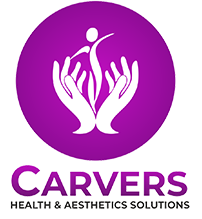
What is Hyaluronic Acid and How Does It Benefit Your Skin?
Hyaluronic acid (HA) is a buzzword in the skincare industry, often hailed as a miracle ingredient for achieving smooth, hydrated, and youthful skin. But what exactly is hyaluronic acid, and how does it benefit your skin? This article delves into the science behind hyaluronic acid, its skin benefits, and how you can incorporate it into your skincare routine for maximum effectiveness.
Understanding Hyaluronic Acid
Hyaluronic acid is a naturally occurring glycosaminoglycan found throughout the body’s connective tissue. It is a major component of the skin, where it is involved in tissue repair and hydration. Hyaluronic acid is known for its unique ability to bind and retain water molecules, holding up to 1,000 times its weight in water. This property makes it a crucial molecule in maintaining skin hydration and elasticity.
The Science behind Hyaluronic Acid
Hyaluronic acid is a large molecule composed of repeating units of disaccharides. It is naturally present in the skin, joints, eyes, and other tissues, providing lubrication and hydration. In the skin, hyaluronic acid is found in the extracellular matrix, a network of molecules that provides structural support to cells. Here, it helps to retain moisture, contributing to the skin’s plump and youthful appearance.
Benefits of Hyaluronic Acid for the Skin
1. Intense Hydration
Hyaluronic acid’s most notable benefit is its ability to deeply hydrate the skin. By attracting and holding water, it helps to keep the skin moist and supple. This hydration effect can improve the skin’s texture, making it smoother and softer.
2. Improved Skin Elasticity
By maintaining moisture levels, hyaluronic acid helps to preserve the skin’s elasticity. Well-hydrated skin is more resilient and less prone to sagging and wrinkles, contributing to a more youthful appearance.
3. Reduced Fine Lines and Wrinkles
Hyaluronic acid can help to plump up the skin, reducing the appearance of fine lines and wrinkles. By providing adequate hydration, it supports the skin’s natural repair processes, promoting a smoother and more youthful complexion.
4. Enhanced Barrier Function
Hyaluronic acid strengthens the skin’s natural barrier, which helps to protect against environmental aggressors such as pollution and UV radiation. A robust barrier function also prevents moisture loss, further supporting skin hydration.
5. Healing and Soothing
Hyaluronic acid has anti-inflammatory properties that can help to soothe irritated skin and support the healing of wounds and scars. It is often used in treatments for conditions such as eczema and rosacea.
6. Compatibility with All Skin Types
Hyaluronic acid is suitable for all skin types, including sensitive and acne-prone skin. It is non-irritating and does not clog pores, making it a versatile and safe choice for many people.
Incorporating Hyaluronic Acid into Your Skincare Routine
To reap the benefits of hyaluronic acid, it’s important to use it correctly. Here are some tips on how to incorporate it into your skincare routine:
1. Choose the Right Product
Hyaluronic acid is available in various forms, including serums, moisturizers, and masks. Serums are particularly effective as they deliver a concentrated dose of HA directly to the skin.
2. Layer Properly
Apply hyaluronic acid serum on damp skin to maximize its hydrating effects. Follow with a moisturizer to lock in the hydration and create a protective barrier.
3. Use Daily
Consistency is key to seeing results. Use hyaluronic acid daily, preferably in the morning and evening, to maintain optimal hydration levels.
4. Combine with Other Ingredients
Hyaluronic acid works well with other skincare ingredients. It can be used alongside vitamin C for brightening, retinoids for anti-aging, and peptides for additional hydration and skin repair.
5. Sun Protection
While hyaluronic acid can help protect the skin’s barrier, it does not replace the need for sunscreen. Always use a broad-spectrum SPF during the day to protect your skin from UV damage.
Addressing Common Myths
Despite its popularity, several myths surround hyaluronic acid:
Myth: Hyaluronic acid can replace your moisturizer.
Fact: While hyaluronic acid is excellent for hydration, it should be used in conjunction with a moisturizer to seal in the moisture.
Myth: More hyaluronic acid means better results.
Fact: Higher concentrations of hyaluronic acid are not necessarily better. It is important to choose a formulation that suits your skin type and needs.
Myth: Hyaluronic acid is only for dry skin.
Fact: All skin types can benefit from hyaluronic acid. Even oily skin needs hydration, and HA can provide it without causing breakouts.
Conclusion
Hyaluronic acid is a powerful and versatile ingredient that offers a multitude of benefits for the skin. From intense hydration to reducing fine lines and enhancing the skin’s barrier function, it plays a vital role in maintaining a youthful and radiant complexion. By understanding how to effectively incorporate hyaluronic acid into your skincare routine, you can unlock its full potential and achieve healthier, more hydrated skin. Remember, consistency and proper layering are key to maximizing the benefits of this remarkable molecule.
